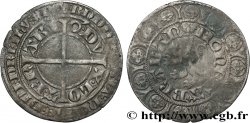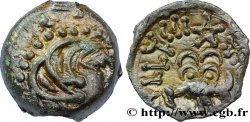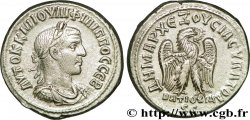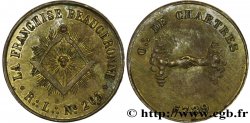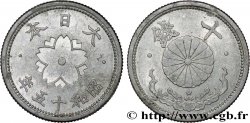bmv_624148 - RODEZ (RUTENIS CIVITAS) - Aveyron Triens, VENDIMIVS monétaire
Not available.
Item sold on our e-shop (2021)
Price : 3 300.00 €
Item sold on our e-shop (2021)
Price : 3 300.00 €
Type : Triens, VENDIMIVS monétaire
Date: 600-675
Mint name / Town : Rodez (12)
Metal : gold
Diameter : 12 mm
Orientation dies : 6 h.
Weight : 1,19 g.
Rarity : R3
Coments on the condition:
Ce triens est frappé sur un flan large et irrégulier. Défaut de flan à 5 heures au revers
Catalogue references :
Obverse
Obverse legend : ANÉPIGRAPHE .
Obverse description : Tête diadémée à droite ; devant un losange aux angles terminés de globules.
Reverse
Reverse legend : + VENDEMIVS MNET, (DE ET MNET LIÉS).
Reverse description : Monogramme formé des lettres de RVTENIS.
Reverse translation : (Vendemius monétaire).
Commentary
Le monétaire VINDIMIVS fut très productif avec une très vaste série de triens, principalement différenciés par le style du droit et par le motif qui orne le droit devant le visage.
Au revers, le monogramme central est facilement développable en RVTENIS. Le premier monnayage de Rodez est un monnayage royal, pour CHILDEBERT (cf. B. 3866-3869). Le type du revers est déjà un monogramme (moins élaboré, avec seulement les lettres RET) associé à un buste de face au droit, ou alors une croix accostée des lettres R et V, associé à un petit personnage en pied (hérité de la victoire romaine) au droit.
Pour le type de notre triens, avec une tête laurée à droite et le monogramme de RVTENIS, plus d’une douzaine de monétaires sont attestés. Si le monnayage d’or est très abondant, seulement deux deniers sont répertoriés (B. 3947-3948) d’une typologie de droit assez hétérogène, mais avec le même monogramme au revers.
Au revers, le monogramme central est facilement développable en RVTENIS. Le premier monnayage de Rodez est un monnayage royal, pour CHILDEBERT (cf. B. 3866-3869). Le type du revers est déjà un monogramme (moins élaboré, avec seulement les lettres RET) associé à un buste de face au droit, ou alors une croix accostée des lettres R et V, associé à un petit personnage en pied (hérité de la victoire romaine) au droit.
Pour le type de notre triens, avec une tête laurée à droite et le monogramme de RVTENIS, plus d’une douzaine de monétaires sont attestés. Si le monnayage d’or est très abondant, seulement deux deniers sont répertoriés (B. 3947-3948) d’une typologie de droit assez hétérogène, mais avec le même monogramme au revers.







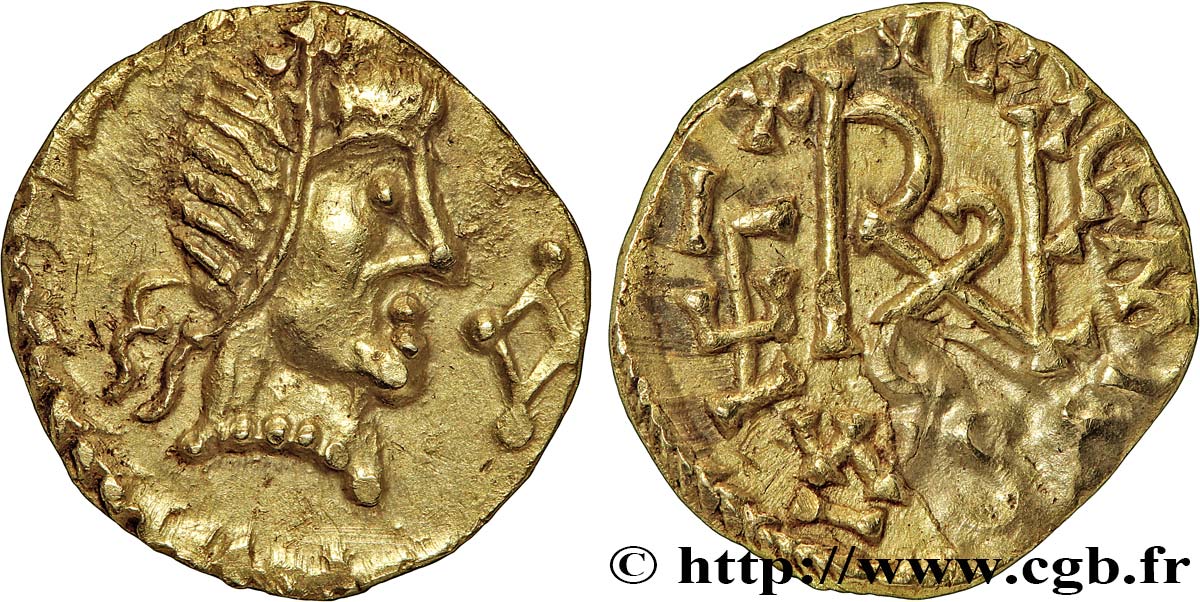
 Report a mistake
Report a mistake Print the page
Print the page Share my selection
Share my selection Ask a question
Ask a question Consign / sell
Consign / sell